Understanding BCBA Salaries
When it comes to understanding the salaries of Board Certified Behavior Analysts (BCBAs), there are several factors to consider. This section provides an introduction to BCBA salaries and explores the key factors that can influence these salaries.

Introduction to BCBA Salaries
BCBAs are highly trained professionals who work in the field of Applied Behavior Analysis (ABA). They play a critical role in assessing, designing, and implementing behavior intervention programs for individuals with autism spectrum disorder and other developmental disabilities.
BCBA salaries can vary depending on various factors such as education, experience, location, industry, and work setting. It’s important to have a clear understanding of these factors to gauge the average salary range for professionals in this field.
Factors Affecting BCBA Salaries
- Education and Experience: The level of education and years of experience as a BCBA can have a significant impact on salary. BCBAs with advanced degrees, such as a master’s or doctoral degree in behavior analysis, often command higher salaries. Additionally, professionals with several years of experience may have the potential to earn higher salaries compared to those who are relatively new to the field.
- Location and Cost of Living: The geographic location where a BCBA practices can greatly influence their salary. Salaries can vary based on factors such as the local cost of living, demand for BCBAs in the area, and regional economic conditions. For example, BCBAs working in metropolitan areas or regions with a higher cost of living may earn higher salaries compared to those in rural areas.
- Industry and Work Setting: The industry and work setting in which a BCBA is employed can also impact their salary. BCBAs can work in various settings, including schools, clinics, hospitals, and private practice. Salaries may differ based on the demand for BCBAs in specific industries and the resources available in different work settings.
To gain a more comprehensive understanding of BCBA salaries, it is important to explore the national average salary as well as regional differences. By delving into these factors, individuals considering a career as a BCBA can make informed decisions regarding their potential salary expectations and career path.
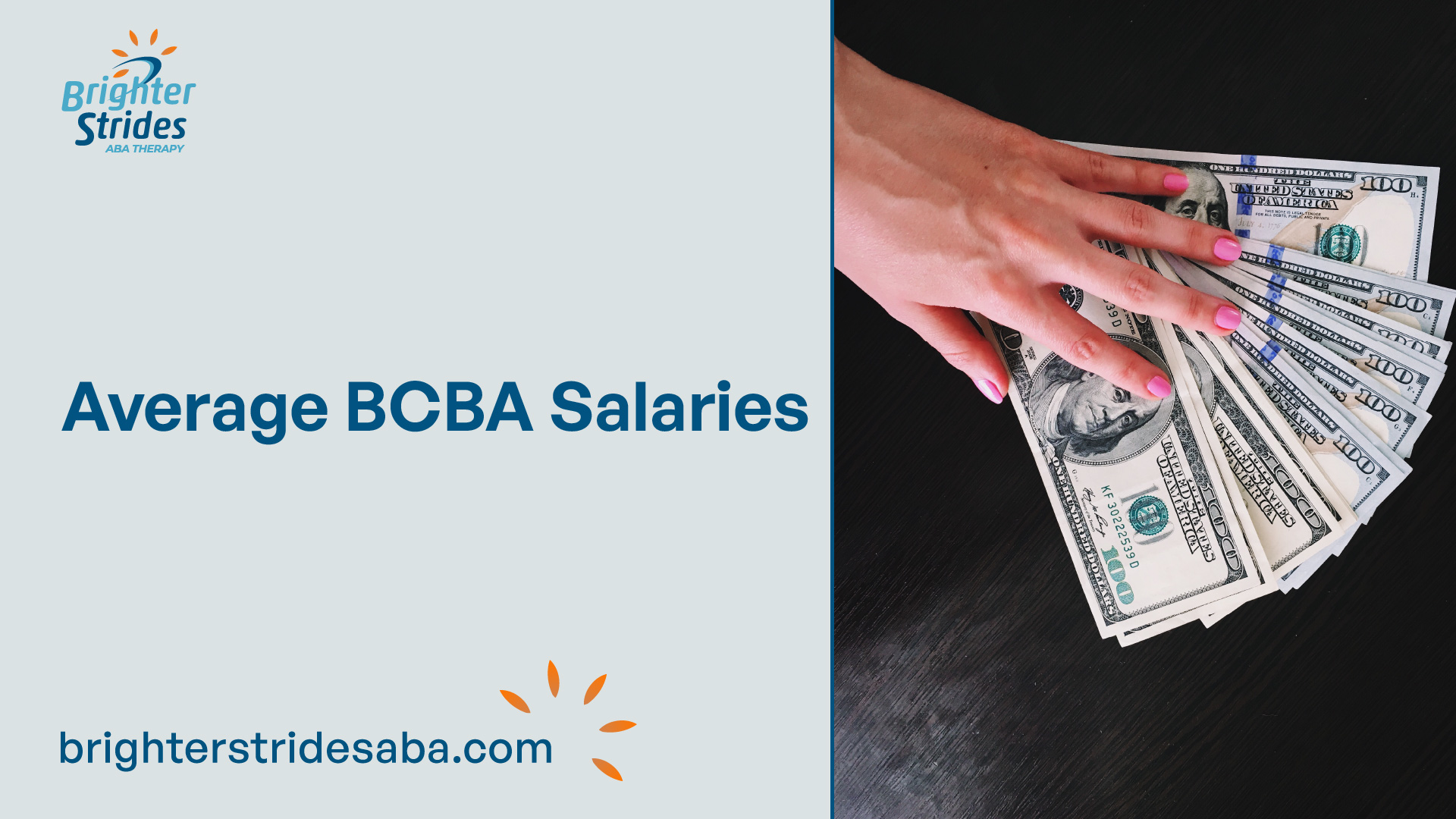
Average BCBA Salaries
When it comes to BCBA (Board Certified Behavior Analyst) salaries, it’s essential to understand the average earnings within this field. This section will provide an overview of the national average BCBA salary as well as the regional differences that can impact earnings.
National Average BCBA Salary
The national average BCBA salary serves as a benchmark for understanding the earning potential within this profession. It takes into account various factors such as education, experience, and location. While individual salaries can vary, the national average provides a general indication of what BCBAs can expect to earn.
According to recent data, the national average BCBA salary is approximately $73,000 to $85,000 per year. This figure represents the median salary range for BCBAs across the country. However, it’s important to note that salaries can differ significantly depending on factors such as years of experience, educational qualifications, and geographic location.
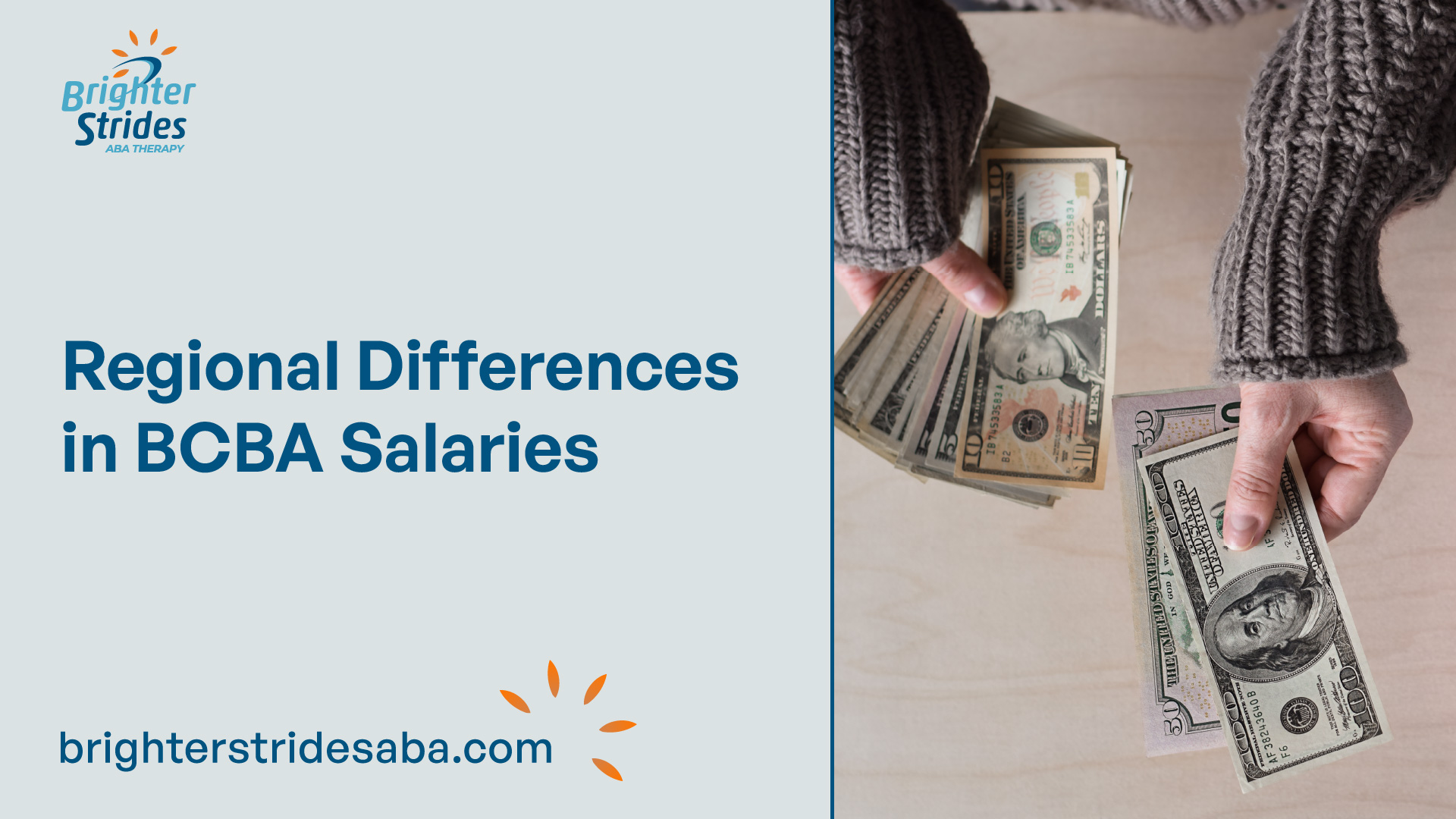
Regional Differences in BCBA Salaries
BCBA salaries can vary based on regional differences and cost of living. Salaries tend to be higher in areas with a higher cost of living, such as major cities or metropolitan areas. Conversely, salaries may be relatively lower in rural or less densely populated regions.
To illustrate the regional differences in BCBA salaries, consider the following table showcasing the average BCBA salaries in different regions of the United States:
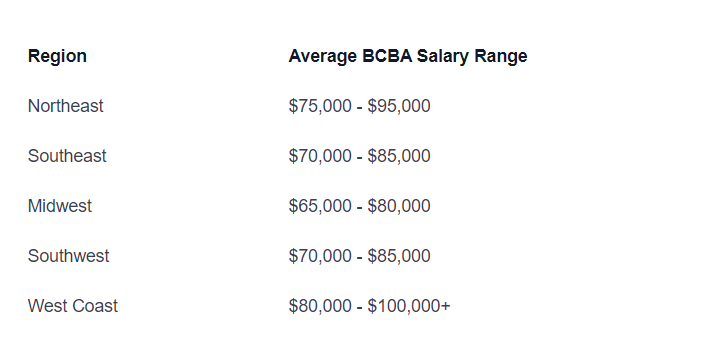
It’s important to remember that these figures are approximate and can vary based on factors such as experience, education, and demand for BCBAs in each specific region. It’s always advisable to research and consider the cost of living and job market conditions when assessing potential BCBA salaries in a particular area.
Understanding the national average BCBA salary and the regional differences can provide insights into the earning potential within this field. However, it’s crucial to assess individual circumstances and factors that may affect salary, such as experience, education, and location, when considering a career as a BCBA.
Factors Influencing BCBA Salaries
When it comes to BCBA salaries, several factors come into play that can influence the income of professionals in this field. Understanding these factors is essential for individuals considering a career as a Board Certified Behavior Analyst (BCBA). The three primary factors that impact BCBA salaries are education and experience, location and cost of living, and industry and work setting.
Education and Experience
The level of education and experience a BCBA possesses can significantly impact their salary. BCBAs with advanced degrees, such as a master’s or doctoral degree in behavior analysis or a related field, often command higher salaries compared to those with only a bachelor’s degree. Additionally, individuals with several years of experience in the field may be eligible for higher-paying positions or promotions.
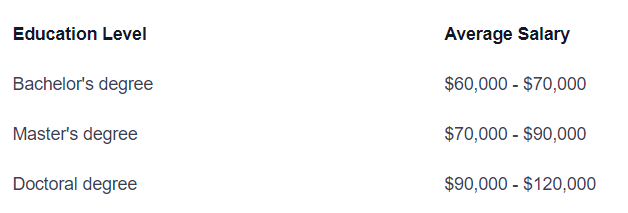
Location and Cost of Living
BCBA salaries can vary significantly based on the geographical location and the cost of living in that area. Salaries tend to be higher in metropolitan areas and regions with a high demand for behavior analysts. Cities with higher living costs often offer higher salaries to compensate for the increased expenses.

Industry and Work Setting
The industry and work setting in which a BCBA is employed can also impact their salary. BCBAs working in educational institutions, healthcare facilities, or private practices may earn higher salaries compared to those working in non-profit organizations or government agencies. Additionally, specialized industries such as autism treatment centers or applied behavior analysis clinics may offer higher salaries due to the specialized nature of the work.
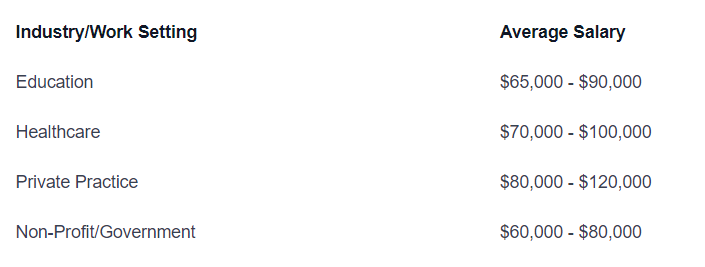
It’s important to note that these salary ranges are approximate and can vary based on factors such as demand, experience level, and specific job responsibilities. BCBAs should research and consider these factors when evaluating potential job opportunities and negotiating salaries.
Understanding the factors that influence BCBA salaries can help individuals make informed decisions about their career paths. By considering their education and experience, the location and cost of living, and the industry and work setting, aspiring BCBAs can better navigate their career progression and salary expectations.
Career Growth and Salary Potential
A career as a Board Certified Behavior Analyst (BCBA) offers promising opportunities for advancement and salary growth. BCBAs who demonstrate expertise, dedication, and continuous professional development can unlock various paths to advance their careers and increase their earning potential. In this section, we will explore the advancement opportunities for BCBAs and the factors that can influence salary growth.
Advancement Opportunities for BCBA
BCBAs can pursue several avenues for career advancement, allowing them to take on more challenging and higher-paying roles within the field of applied behavior analysis. Some common advancement opportunities for BCBAs include:
- Senior BCBA: BCBAs with several years of experience and a proven track record of success may be promoted to senior positions. In these roles, they often take on additional responsibilities such as supervising other behavior analysts, leading research initiatives, or managing programs.
- Clinical Director: BCBAs who excel in their clinical practice and demonstrate exceptional leadership and management skills may progress to become clinical directors. In this role, they oversee the delivery of behavioral services, manage teams of behavior analysts, and ensure the quality and effectiveness of treatment programs.
- Academic and Research Positions: BCBAs with a passion for academia and research can explore opportunities in universities, research institutions, or think tanks. These positions involve conducting research, publishing scholarly articles, and teaching aspiring behavior analysts.
- Consulting and Entrepreneurship: Some BCBAs choose to start their own consulting practices or behavioral therapy clinics, offering their expertise to clients and managing their own businesses. This path allows for greater autonomy, flexibility, and the potential for higher earnings.
Factors Affecting Salary Growth
Several factors can influence the salary growth of BCBAs. Understanding these factors can help BCBAs make informed decisions to maximize their earning potential. Here are some key considerations:
- Education and Experience: BCBAs with advanced degrees, such as a master’s or doctoral degree, often command higher salaries. Additionally, gaining experience through internships, residencies, or working in diverse settings can contribute to salary growth.
- Location and Cost of Living: The geographic location of employment can significantly impact BCBA salaries. Areas with a higher cost of living or a higher demand for BCBAs may offer more competitive compensation packages.
- Industry and Work Setting: BCBAs employed in different industries or work settings may experience variations in salary. For example, BCBAs working in healthcare, educational institutions, or private practice may have different salary ranges.
To provide an overview of the average BCBA salaries at different career stages, the following table presents the approximate salary ranges based on experience:

It’s important to note that these figures are approximate and can vary depending on various factors mentioned above.
By leveraging advancement opportunities and considering the factors that influence salary growth, BCBAs can strive for continued professional development and achieve higher earning potential throughout their careers.
Job Satisfaction and Benefits
As a Board Certified Behavior Analyst (BCBA), job satisfaction plays a significant role in one’s career. In this section, we will explore the job satisfaction among BCBAs and the additional benefits they can enjoy beyond their salaries.
Job Satisfaction Among BCBAs
BCBAs often report a high level of job satisfaction due to the meaningful work they do and the positive impact they have on individuals with behavioral challenges. The ability to make a difference in people’s lives and witness the progress of their clients can be incredibly rewarding.
Furthermore, BCBAs appreciate the opportunity for professional growth and development within their field. The constant learning and application of evidence-based practices keep BCBAs engaged and motivated in their work.
A supportive work environment and collaboration with other professionals also contribute to job satisfaction among BCBAs. The opportunity to work as part of a multidisciplinary team fosters a sense of camaraderie and shared goals.
Additional Benefits Beyond Salary
In addition to competitive salaries, BCBAs can often enjoy a range of benefits that further enhance their overall compensation package. These benefits may vary depending on the employer and work setting. Some of the common additional benefits BCBAs may receive include:
Health Insurance
Many employers offer comprehensive health insurance plans that cover medical, dental, and vision expenses. This valuable benefit helps BCBAs maintain their well-being and provides peace of mind.
Retirement Plans
Retirement plans, such as 401(k) or pension programs, allow BCBAs to save for their future. Employers may offer matching contributions or other incentives to encourage employees to contribute to their retirement savings.
Paid Time Off
Paid time off (PTO) is an essential benefit that allows BCBAs to take time off for vacation, personal reasons, or illness without sacrificing their income. The amount of PTO provided may vary depending on the employer and length of service.
Professional Development Opportunities
Employers often support BCBAs in their pursuit of continuing education and professional development. This may include financial assistance for attending conferences, workshops, or pursuing advanced certifications.
Flexible Work Arrangements
Flexible work arrangements, such as remote work options or flexible scheduling, can contribute to a better work-life balance for BCBAs. This flexibility allows BCBAs to manage their responsibilities effectively and accommodate personal needs.
While salary is undoubtedly a significant factor in one’s overall compensation, the job satisfaction and additional benefits that BCBAs receive contribute to their overall well-being and career fulfillment. These factors make the profession of a BCBA rewarding both financially and personally.
Conclusion
In conclusion, understanding the factors that influence BCBA salaries, career growth opportunities, and job satisfaction can provide valuable insights for individuals considering a career as a Board Certified Behavior Analyst.
While salary is undoubtedly an essential factor in choosing a profession, BCBAs can also enjoy meaningful work, professional development opportunities, and additional benefits that contribute to their overall well-being and job satisfaction. As the demand for behavior analysts continues to grow in various industries and settings, aspiring BCBAs can leverage this information to navigate their career paths successfully and achieve their professional goals.




